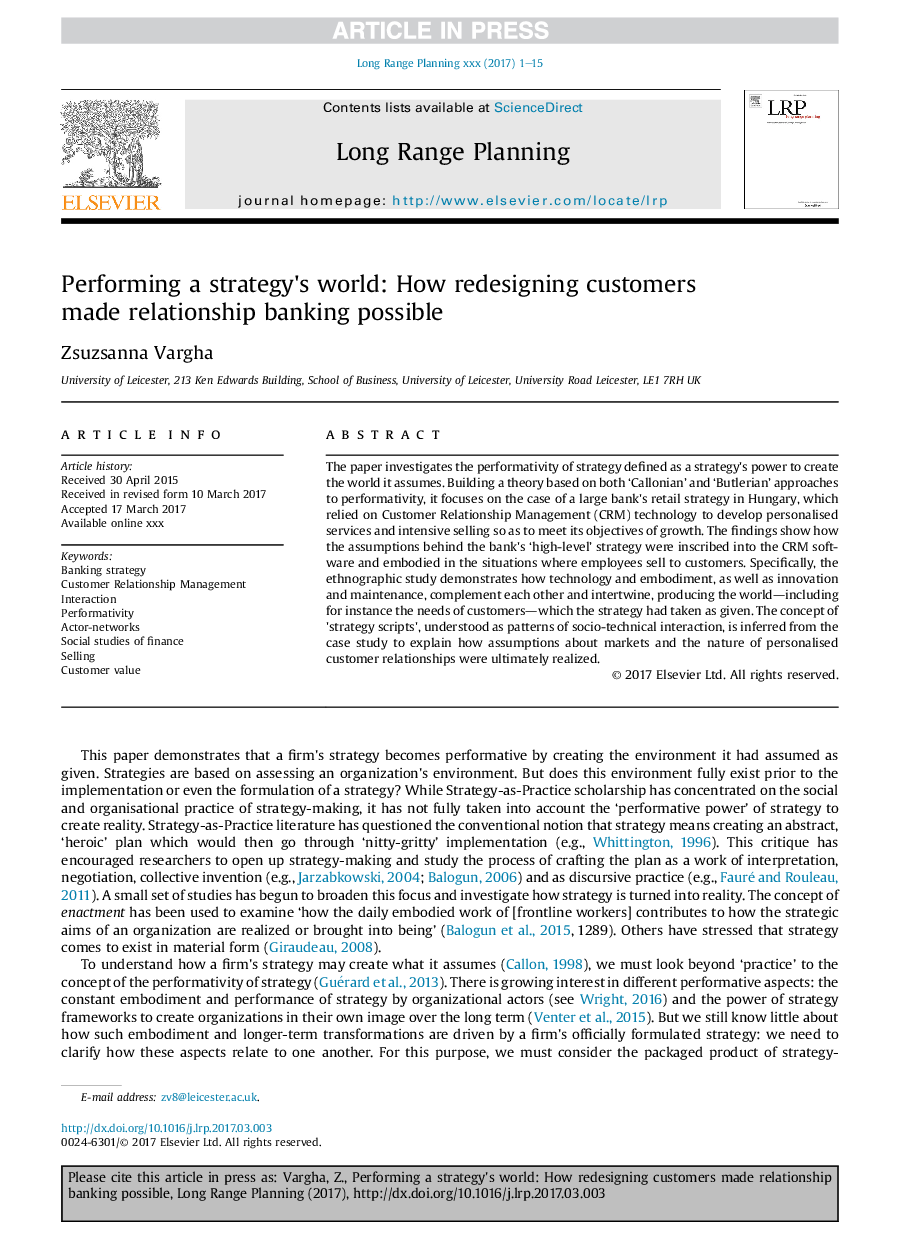| Article ID | Journal | Published Year | Pages | File Type |
|---|---|---|---|---|
| 10226925 | Long Range Planning | 2018 | 15 Pages |
Abstract
The paper investigates the performativity of strategy defined as a strategy's power to create the world it assumes. Building a theory based on both 'Callonian' and 'Butlerian' approaches to performativity, it focuses on the case of a large bank's retail strategy in Hungary, which relied on Customer Relationship Management (CRM) technology to develop personalised services and intensive selling so as to meet its objectives of growth. The findings show how the assumptions behind the bank's 'high-level' strategy were inscribed into the CRM software and embodied in the situations where employees sell to customers. Specifically, the ethnographic study demonstrates how technology and embodiment, as well as innovation and maintenance, complement each other and intertwine, producing the world-including for instance the needs of customers-which the strategy had taken as given. The concept of 'strategy scripts', understood as patterns of socio-technical interaction, is inferred from the case study to explain how assumptions about markets and the nature of personalised customer relationships were ultimately realized.
Keywords
Related Topics
Social Sciences and Humanities
Business, Management and Accounting
Business and International Management
Authors
Zsuzsanna Vargha,
